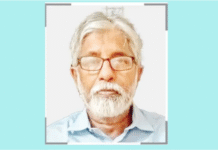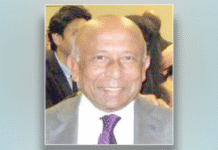Prime Minister Sheikh Hasina’s AL administration faces a constitutional crisis: how to conduct the next general elections? This is reminiscent of a similar crisis the Yahya Junta faced in 1971: how to deal with the Six Points?
Although the origins and characteristics of the two crises differ, the nature and pattern of AL and Junta responses to them reveal considerable similarities.
AL and Junta assets
The Junta enjoyed the advantages of a government in power: lots of resources; control of the bureaucracy; and absolute monopoly of force. The AL government has similar assets but its magnitudes of control differ.
AL oversees the state treasury and has built up a large war chest to fight elections. It controls the bureaucracy where it has placed loyalists including many minorities in key position but whose fidelity is not necessarily absolute or diehard. AL has a national presence as a political party.
While the AL has used the police, RAB, BGB and Chatra League to suppress dissent, it doesn’t have the Junta’s unquestioned control over the Bangladesh armed forces. The services are sworn to defend the constitution, not a political party. Whether this commitment would cover all provisions of the constitution is an open question.
AL and Junta liabilities
Despite its assets, the Junta lost, for three reasons.
The first was that its cause—to keep the country together lacked purity. It camouflaged Islamabad’s real aim of hanging on to power at all costs. The predictable result of the Junta’s use of brute force was complete alienation of the Bengalis and wholesale loss of legitimacy domestically and globally.
This impurity caused the Junta to become stubborn, irrational and cranky in crafting solutions to the constitutional crisis, resulting in a loss of political initiative. This enabled the Bangladesh government-in-exile to reach an understanding with Delhi that resulted in USSR-backed successful Indian military intervention.
Equally significant was that the morale of the soldiers of Pakistan’s Eastern Command in East Pakistan symbol of Islamabad’s sovereignty—withered and collapsed, as their security profile became extremely precarious over time, yielding a comfortable victory for the Indo-Bangladesh Joint Command.
Intriguingly enough, AL faces the same three problems the Junta faced: impure cause; loss of initiative and low morale.
BAKSAL resurrected
Despite Hasina’s claim that she is practicing and defending democracy, many observers contend that the 15th Amendment was a preemptive power grab to ensure that the Sheikh family and the AL remain in power by resurrecting discredited BAKSAL in new constitutional garb.
Two factors support this conclusion. First, various newspaper polls reveal that a majority of respondents favour elections under a Care Taker Government (CTG). Second, the AL’s resounding defeat in the five municipal elections indicates substantial public alienation with its performance.
The loss of public confidence has dented the AL’s political initiative in dealing with the mounting popular concern over its long litany of misgovernance such as stock market and Padma bridge scandals
Without holding any brief for the Hefazat, the AL’s post-midnight vicious attack on its supporters was going a bridge too far. The AL’s questionable justifications for the crackdown resemble in tone and tenor those trotted out by the Junta after 25 March 1971.
The combination of impure cause and loss of initiative has eroded the morale of the AL leaders and cadres. Sheikh Hasina has recently stated that she would not budge an inch over holding elections under a CTG. This merely repeats earlier such assertions whose effectiveness is dubious as it cites unconvincing even laughable arguments, a sign of jaded thinking and poor morale. The AL has locked itself into a political straitjacket of its own making. Is that why Hasina can’t give an inch?
Rigid obstinacy
Given the military mindset that sees things in black and white, the Junta behaved with rigid obstinacy in trying to impose a political solution through bayonets.
Sheikh Hasina’s style of governance “the AL can do no wrong” replicates the Junta’s authoritarian rigidity and reflects the AL and her family’s genetic make-up.
Historically, the AL’s organization structure and work ethic lacked internal democracy since it emphasized centralized top-down decision-making, with absolute powers vested in the leader.
Despite his long fight against autocracy, Sheikh Mujib voluntarily became an autocrat by ramming through the Fourth Amendment on 25 January 1975 using the AL’s brute parliamentary majority to manufacture BAKSAL.
As her father’s daughter, Hasina has continued this family tradition by passing (291-1) the 15th Amendment on 30 June
2011 scrapping the CTG system
Both Amendments had the same motive: to ensure that the Sheikh family remains in power.
Unless the AL stops further digging of the hole it’s in, it faces the prospect of a meltdown in any credible elections.
Source: Weekly Holiday









